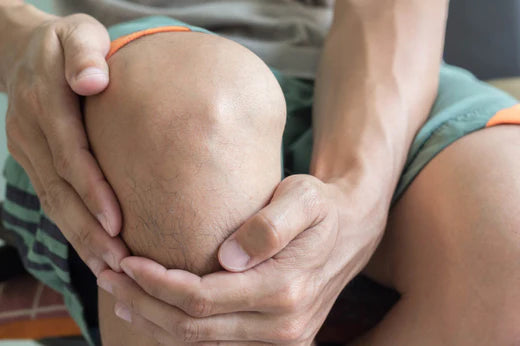8 Nondrug Treatments for Arthritis
Posted on April 16 2023

Author: James Rouse, N.D.
In rheumatoid arthritis, the inflammation is usually an immune reaction. It could be the body’s defense against invading microorganisms, but often the immune reaction against the body’s own tissue is of unknown cause. Rheumatoid arthritis is characterized by an inflammation of the inner linings of the joint capsules. Blood tests often reveal the presence of rheumatoid factors, proteins produced by the immune system in response to the rheumatic process. Talk to your doctor about trying these non-drug, non-surgical treatments that may help ease the pain and aches associated with arthritis:
1. Get Moving
Don't be afraid to exercise. In addition to traditional treatment approaches that may include prescription medications, several studies have shown the benefits of exercise for people with osteoarthritis. Do listen to your body, though: If there is pain with movement, you may need to consider a different form of exercise. And obviously, exercises or sports that place excessive stress on your joints should be avoided (i.e., tennis with arthritic knees). It is imperative to check with your doctor before engaging in any new exercise program.
Exercises to consider include walking, swimming, biking, stretching, yoga, and resistance (weight) training. Swimming is especially gentle; it puts less stress on the joints and allows the body weight to be supported by the water. Cardiovascular conditioning can be performed in the water without a lot of stress being put on the larger joints of the body. Stretching and strengthening exercises will help support the muscles and ligaments surrounding a joint, which can protect and reduce stress on the joint. For example, stronger thigh muscles take some of the stress off of weight-bearing joints such as the knees and hips.
2. Lose weight
This can have effects similar to those of strengthening exercises.
3. Balance exercise with rest, stretching and relaxation
Try icing the joint within 24 hours after working it out and then alternating hot and cold packs. But again, don’t be afraid to exercise – it should not cause any further damage to the joint. Remember that you are focusing on strengthening the surrounding muscle tissue to protect and strengthen the joint.
4. Try herbal treatments
There are some herbal medicines that may help the condition of osteoarthritis by decreasing inflammation and alleviating pain. Devil’s Claw (Harpagophytum procumbens) is a popular herbal remedy from the Kalahari desert. The herb contains a group of glycosides called harpagosides that have been shown to have a distinct anti-inflammatory effect. Yucca, another desert plant has been shown to have a positive effect in persons with osteoarthritis. Boswellia serrata is an Ayurvedic herb that appears to have anti-inflammatory actions and clinical studies support its use in osteoarthritis.
5. Try glucosamine
The very popular glucosamine sulfate has enough supportive research to support its use in osteoarthritis. Glucosamine sulfate has double-blind clinical trials that have shown greater improvement in symptoms when glucosamine sulfate was supplemented long-term compared to non-steroidal anti-inflammatory drugs. The usual dose for glucosamine is 1500 milligrams daily, taken with food.
6. Get some bodywork
Acupuncture, hydrotherapy, and massage may all provide relief to the individual suffering with osteoarthritis. Each modality is definitely worth considering.
7. Take a multivitamin and mineral
This may benefit arthritis sufferers, as a daily multiple can benefit most people.
8. Tweak your diet
Certain foods may aggravate arthritis; try avoiding these foods if you suffer from osteoarthritis. Part of the nightshade family, these foods include tomatoes, potatoes, eggplant, and bell peppers. Also avoid excessive alcohol, and avoid tobacco and refined sugar.
Consult your doctor before using any alternative therapy or health treatment — including herbal supplements and natural remedies — and tell your doctor if you have a serious medical condition or are taking any medications. The information presented here is for educational purposes only and is in no way intended as substitute for medical counseling.